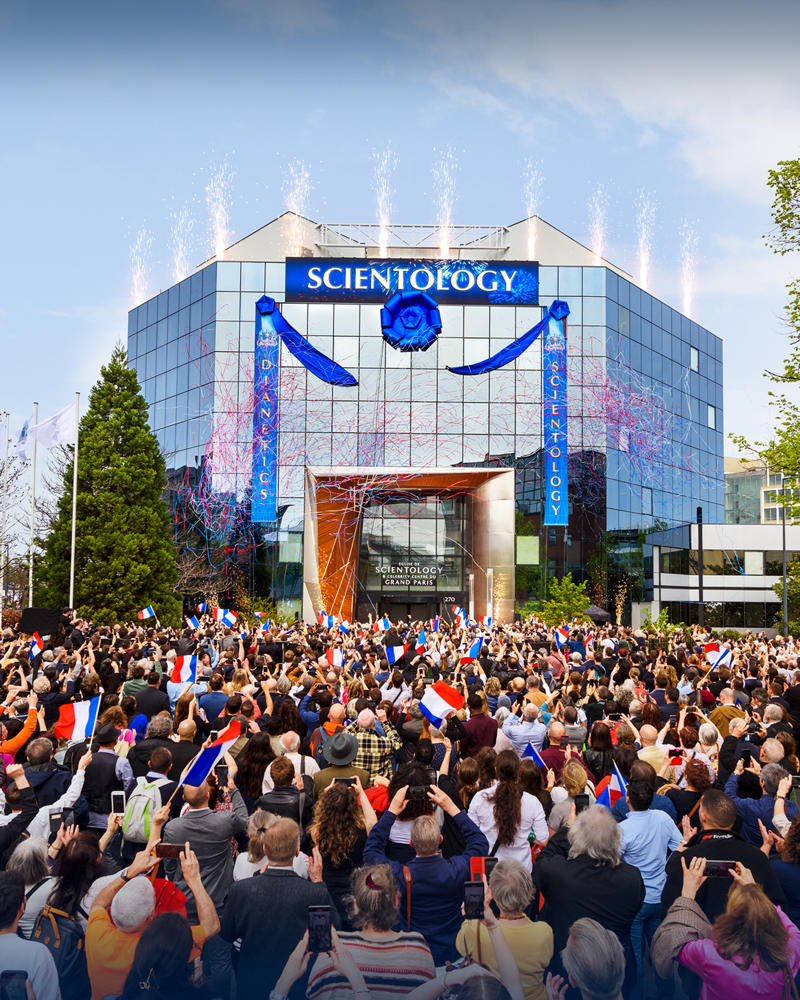Scientology in Pop Culture: Depictions and Misunderstandings
Scientology in Pop Culture: Depictions and Misunderstandings
Blog Article
Encouraging the Mind: Opening the Tricks of Scientology
Scientology, a spiritual system established by L. Ron Hubbard in the 1950s, has amassed both intrigue and controversy for many years. With its concentrate on attaining spiritual enlightenment and boosting one's mental health, Scientology uses an one-of-a-kind viewpoint on the human mind and spirit. Through the application of its core principles, followers assert to open concealed potentials and discover a deeper understanding of themselves and the world around them. Nevertheless, the keys and practices behind Scientology stay shrouded in enigma for numerous, leaving a curious space waiting to be filled up.
The Beginnings of Scientology
The origins of Scientology can be traced back to the early 1950s when L. Ron Hubbard created the fundamental concepts of this debatable religious activity. Attracting from his earlier self-help system recognized as Dianetics, Hubbard broadened his concepts to form what would become Scientology. In 1952, he released his seminal job, "Dianetics: The Modern Scientific Research of Mental Health And Wellness," which laid the groundwork for the ideas and practices that specify Scientology today.
Hubbard's teachings focused on the idea of the human mind as a database of past injuries, understood as engrams, which prevent personal growth and spiritual growth. Through a process called auditing, adherents of Scientology purpose to clear themselves of these engrams and attain a state of mental clarity and spiritual enlightenment referred to as Clear.
The very early years of Scientology saw fast growth as Hubbard's ideas reverberated with a section of the population seeking alternative approaches to self-improvement and spiritual satisfaction. Regardless of running the gauntlet and dispute, Scientology has proceeded to advance and draw in fans worldwide, shaping the beliefs and lives of its members.
Core Ideas and Practices
Exploring the essential tenets and rituals of Scientology discloses a complex tapestry of ideas and methods that direct followers in their spiritual journey. At the core of Scientology is the belief in the immortal spirit, understood as the thetan, which is viewed as truth self that transcends the real world (Scientology). Scientologists seek to lose unfavorable past experiences with a procedure called bookkeeping, where a therapist aids individuals deal with injury and unfavorable feelings to reach a state of spiritual well-being
Central to Scientology is the method of Dianetics, a collection of practices and ideas created by L. Ron Hubbard that intends to enhance psychological health and wellness and self-awareness. With Dianetics, adherents strive to achieve a state of "clear," where they are without the unfavorable results of past injuries and can fully understand their spiritual capacity.
In addition, Scientology stresses individual growth and self-improvement via courses and therapy sessions focused on improving communication abilities, connections, and overall health. These techniques develop the foundation of Scientology's strategy to spiritual knowledge and empowerment.
Dianetics: The Science of the Mind
Diving right into the depths of Scientology discloses Dianetics as the fundamental scientific research assisting followers on a journey of psychological wellness and self-awareness. Established by L. Ron Hubbard, Dianetics concentrates on the mind's responsive mind, which shops uncomfortable experiences, bring about adverse habits and emotions. The core facility of Dianetics is that these unfavorable experiences can be attended to with a procedure called bookkeeping, where individuals remember and challenge past traumas to attain a state called Clear.
By determining and resolving these previous terrible experiences, individuals aim to achieve a state of mental clarity and emotional well-being. Dianetics offers as a device for people to comprehend the workings of their own minds and conquer constraints that hinder personal growth and joy.

Getting Spiritual Enlightenment
Structure upon the structure of Dianetics, the quest of spiritual knowledge within Scientology incorporates a profound journey in the direction of internal peace and transcendence. Accomplishing spiritual knowledge in Scientology involves a series of methods and mentors made to assist people reach a state of greater understanding and understanding of themselves and the globe around them.

Scientologists think that by increasing their understanding of the thetan and achieving a state of spiritual clearness, they can obtain a greater degree of consciousness and awareness (Scientology). This heightened recognition is thought to cause a sense of internal peace, consistency, and connection to deep space
Applying Scientology Concepts
Using the foundational concepts of Scientology in day-to-day live calls for a deep understanding of its trainings and a dedication to individual growth and advancement. One essential facet of applying Scientology concepts is the method of enhancing interaction skills. Scientologists think that reliable communication is important for successful relationships and individual gratification. By following Scientology teachings on interaction, individuals can discover to reveal themselves plainly, pay attention proactively, and deal with problems constructively.
One more important aspect of applying Scientology concepts is the concept of principles and integrity. Scientologists are urged to live ethically and truthfully, taking responsibility for their decisions and activities. Scientology. By straightening their habits with their principles and worths, people can cultivate a feeling of honesty and self-worth
In addition, using Scientology principles entails the search of expertise and self-improvement. Scientologists worth continuous knowing and personal growth, making every effort to broaden their understanding of themselves and the globe around them. With study and reflection, people can strengthen their expertise of Scientology teachings and incorporate them right into their day-to-days live, fostering individual development and empowerment.
Final Thought
In final thought, Scientology, started by L. Ron Hubbard, anonymous is a religious beliefs that focuses on accomplishing spiritual enlightenment through the method of Dianetics and adherence to its core beliefs. By applying Scientology principles, fans look for to boost their mental wellness and achieve a greater state of consciousness. Through the research study and application of its trainings, people intend to open the secrets of the mind and get to a greater understanding of themselves and the globe around them.

Report this page